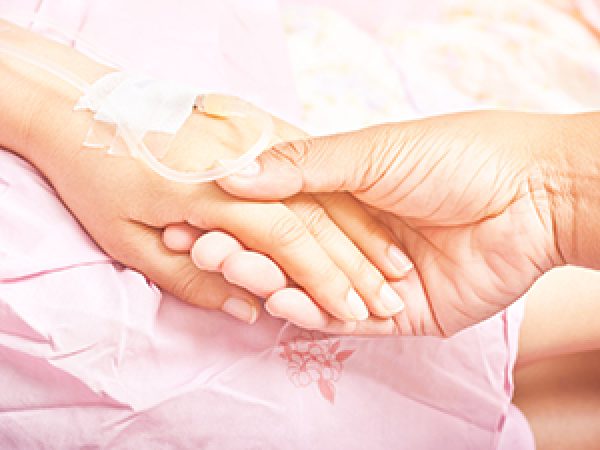Can Distress Screening Help Caregivers?
November is National Family Caregivers Month—a time to raise awareness for the approximately 3 million people in the U.S. who act as caregivers to their relatives, friends, or partners—all while juggling other demanding roles in life.
An article appearing in the fall issue of Cancer Today, a resource for cancer patients, survivors, and caregivers, highlights efforts to understand the nature of distress in caregiving and better ways to provide support for those who need it.
The article notes that more than half of caregivers report symptoms of significant depression or anxiety. Still, only about one in four cancer caregivers access the support they need when experiencing distress, according to Allison Applebaum, a psychologist at Memorial Sloan Kettering Cancer Center in New York.
In one study, Applebaum and her colleagues interviewed caregivers waiting for loved ones at a hospital outpatient surgery center and asked them to complete a questionnaire about caregiving and distress. Their study, published in the March 2019 Oncology Nursing Forum, reports that 16 of the 17 caregivers they approached asked for additional information or a referral after completing the questionnaire. Applebaum is now conducting a larger study focused on distress screening for caregivers, with targeted referrals based on the screening results. “The long-term goal,” she says, “is to integrate distress screening into [our] standard practice.”
Applebaum’s team also published a study in 2018 showing that 22 of the 31 caregivers who completed eight weeks of individual, in-person cognitive behavioral therapy to reduce negative thinking and worrying reported feeling less anxious and depressed and had less negative thinking than before starting the therapy. The caregivers also said they felt better able to handle challenges related to their caregiving.
In efforts to better alleviate caregiver distress, Nicole Amoyal Pensak, a clinical psychologist at Jersey Shore University Medical Center in Neptune, New Jersey, is developing an online program. The program’s nine sessions, each 20 minutes or less, address topics such as stress and the mind-body connection, coping with uncertainty, and improving relationships. The program includes three-minute relaxation, gratitude, and communication exercises. Preliminary findings, reported in March 2019 at the Annual Conference for the Society for Behavioral Medicine, show that caregivers who used the online program reported feeling less stress.
Amoyal Pensak says caregivers need to know it’s OK to ask for help. “The better they take care of themselves,” she says, “the better they’ll be able to take care of others.”
This article was adapted from the fall issue of Cancer Today, an online resource and magazine for cancer patients, survivors, and caregivers that is published by the American Association for Cancer Research.





Thanks for sharing, Such a Good Article, Everyone will get some awareness of screening.